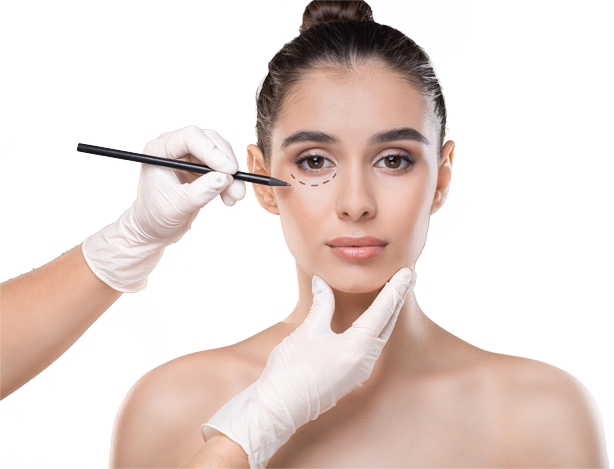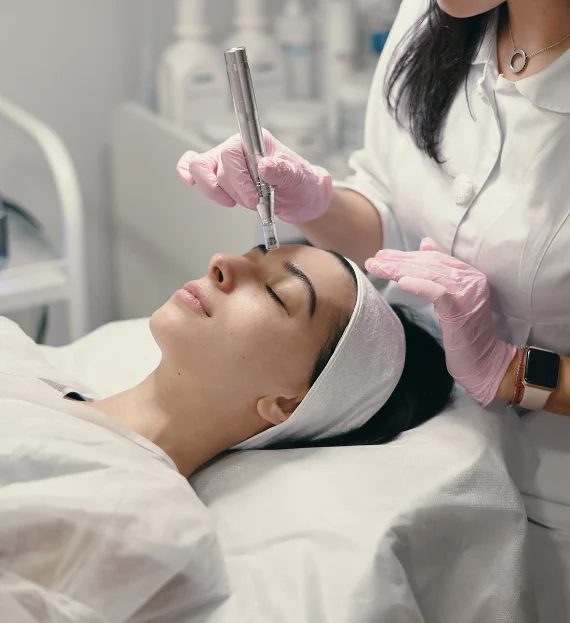Stimulates Collagen production
Most Popular Procedures
Collagen is a protein that is naturally produced by the body and plays an important role in maintaining the structure, elasticity, and hydration of the skin. As we age, collagen production naturally decreases, leading to wrinkles, sagging, and other signs of aging.
There are several ways to stimulate collagen production in the skin, including:
Micro-needling: Micro-needling involves the use of a device with small needles to create tiny punctures in the skin, which helps to stimulate collagen production and improve skin texture.
Laser therapy: Certain types of laser therapy, such as fractional laser resurfacing, can help to stimulate collagen production and improve the appearance of fine lines and wrinkles.
Radiofrequency therapy: Radiofrequency therapy uses energy waves to heat the skin and stimulate collagen production, which can help to tighten and firm the skin.
It’s important to talk to a dermatologist or skincare professional to determine the best method for stimulating collagen production based on your individual needs and skin type. Additionally, it’s important to use sunscreen and take other steps to protect the skin from further damage and aging.
Faq
Frequently Asked Questions
A. The timeline for seeing results from collagen-stimulating treatments can vary depending on the specific treatment and the individual's skin type and condition. Some treatments, such as topical treatments or micro-needling, may take several weeks or months to see noticeable improvements, while others, such as laser therapy or radiofrequency therapy, may have more immediate results.
A. Most collagen-stimulating treatments are considered safe when performed by a qualified dermatologist or skincare professional. However, as with any cosmetic procedure, there are potential risks and side effects that should be discussed with a professional beforehand.
A. The duration of the results from collagen-stimulating treatments can vary depending on the individual's skin type and condition, as well as the specific treatment used. Some treatments may have longer-lasting results than others, and regular maintenance treatments may be necessary to maintain the results.
A. Eating a diet rich in vitamins and minerals, such as vitamin C, vitamin E, and zinc can help to support collagen production in the body. Additionally, reducing sun exposure, quitting smoking, and staying hydrated can also help to support healthy collagen production.
A. Collagen-stimulating treatments can generally be used on all skin types, but it's important to consult with a dermatologist or skincare professional to determine the best treatment based on the individual's skin type and condition. Some treatments may be more suitable for certain skin types than others.






